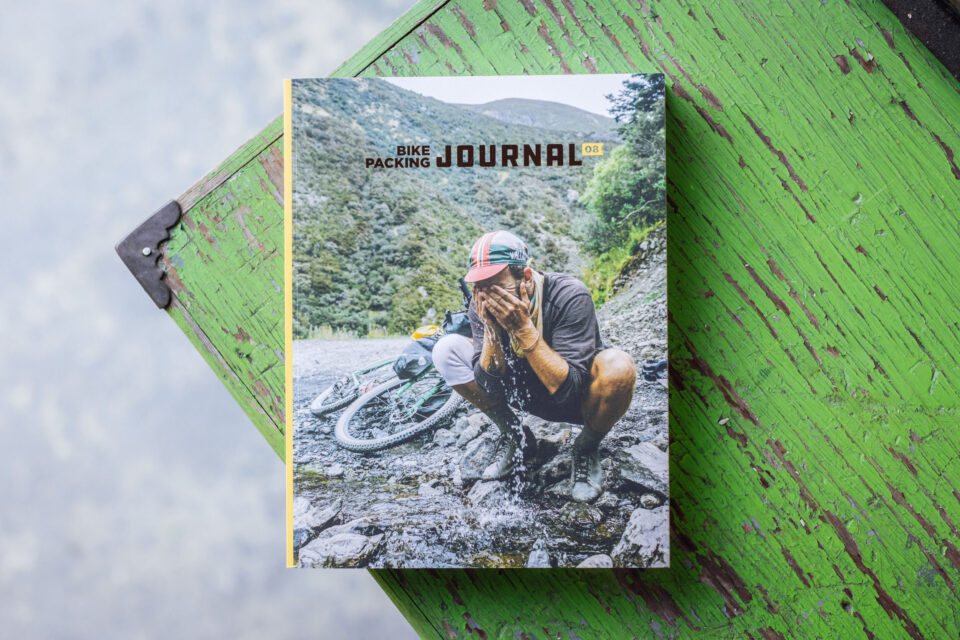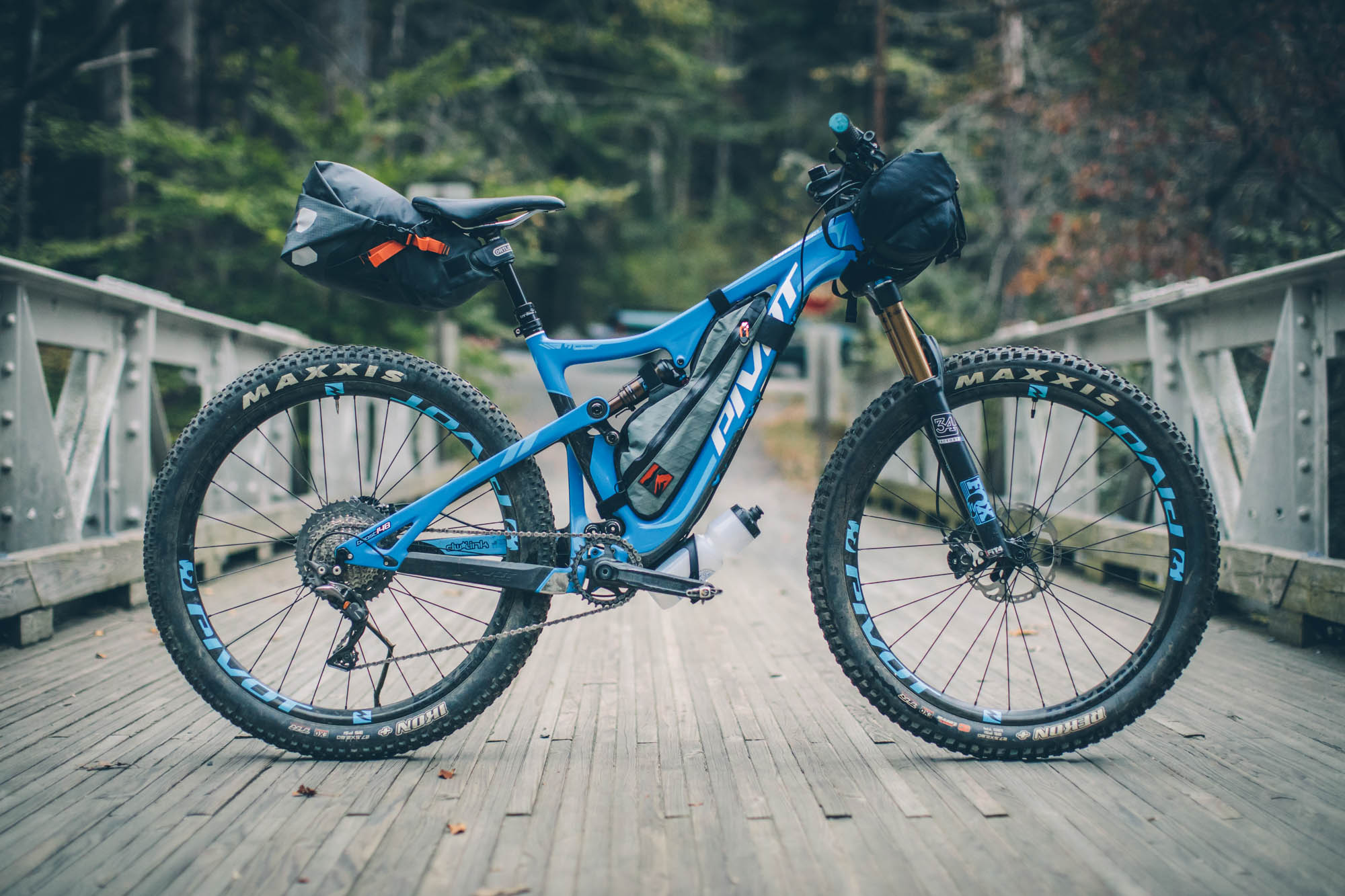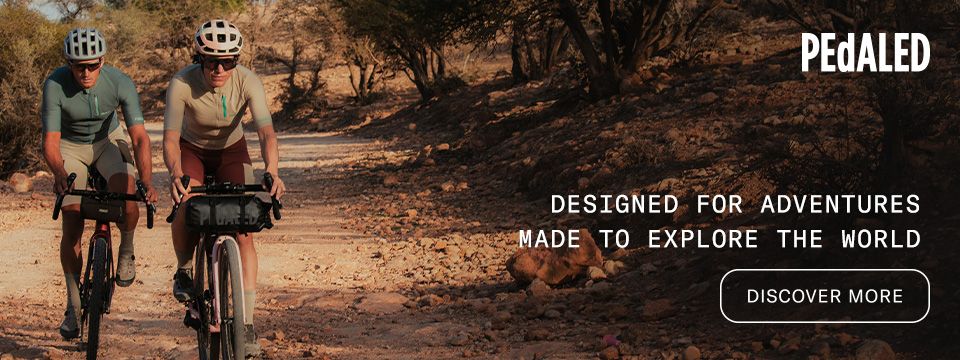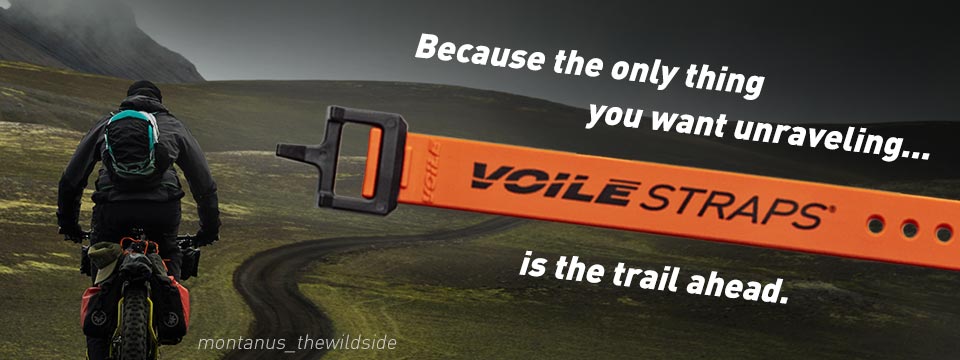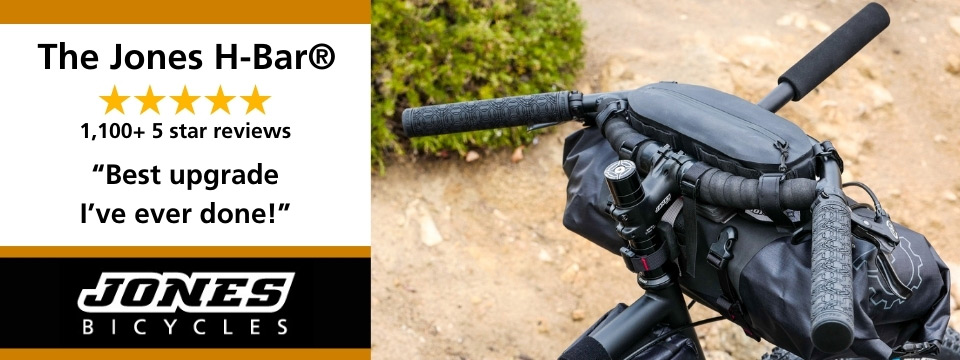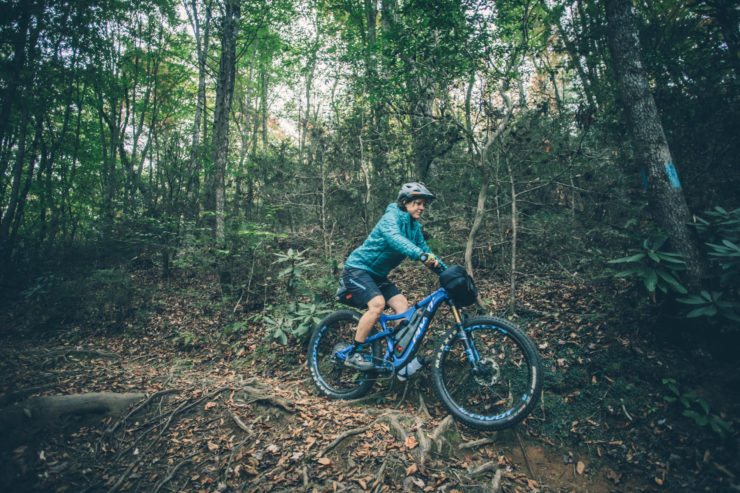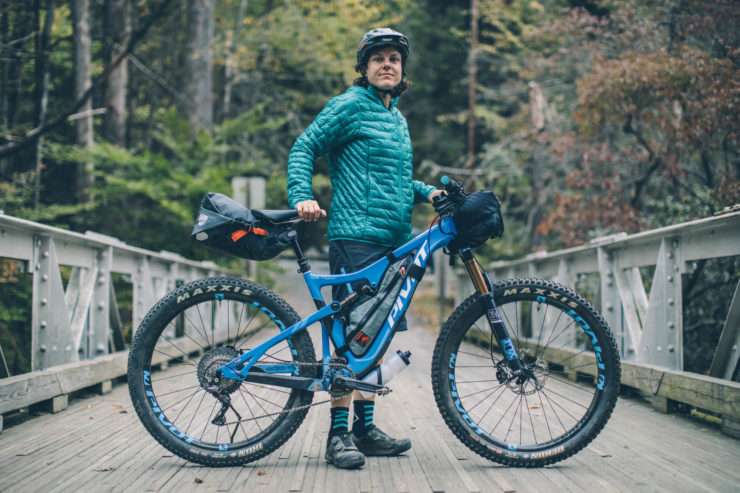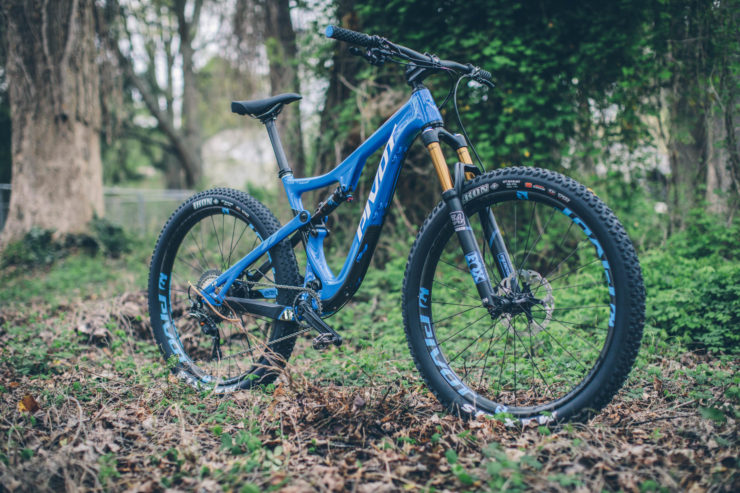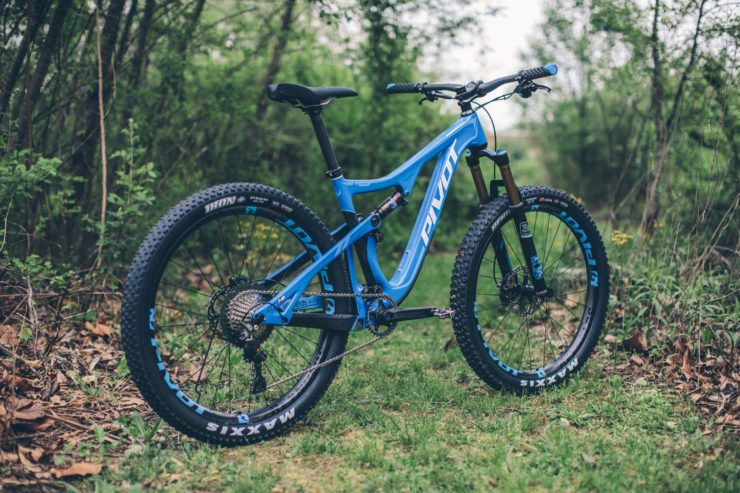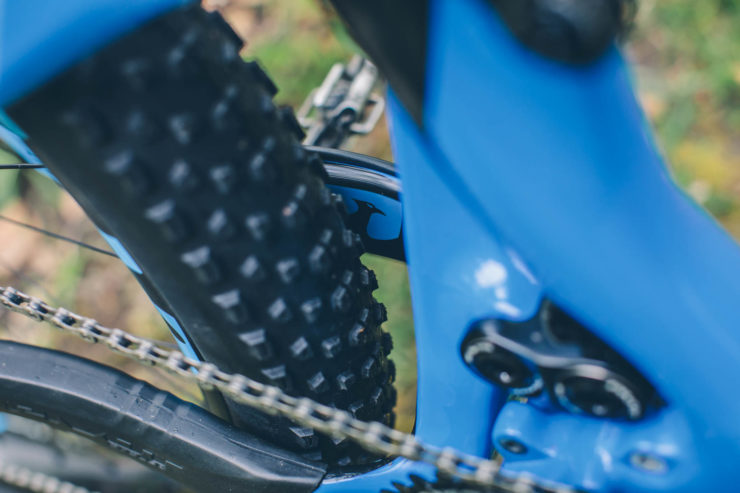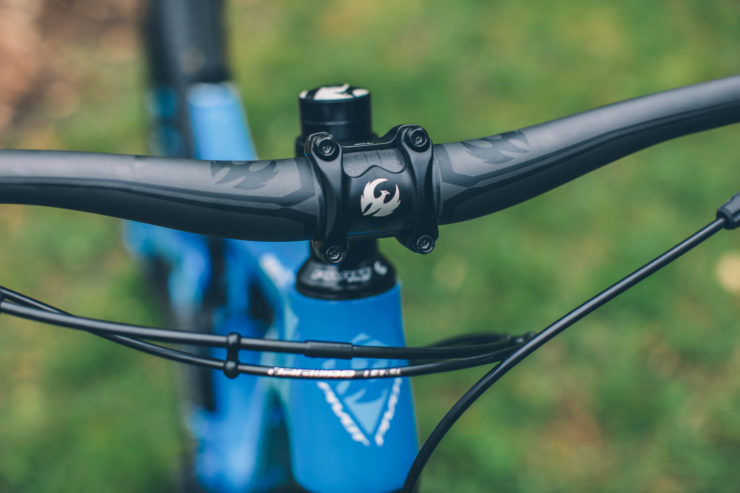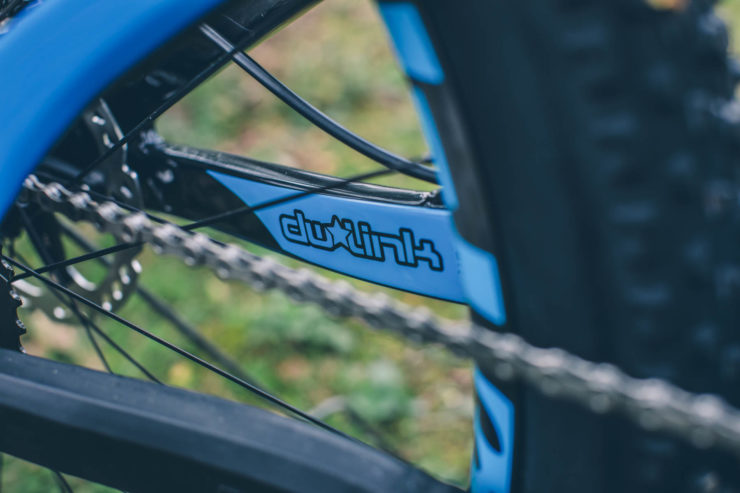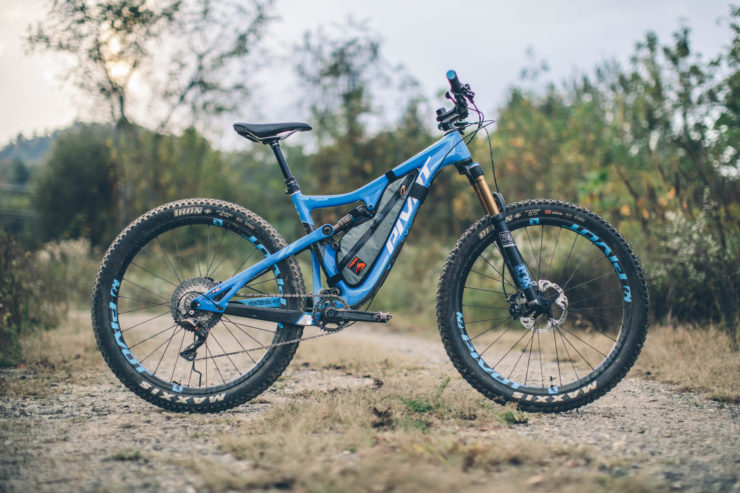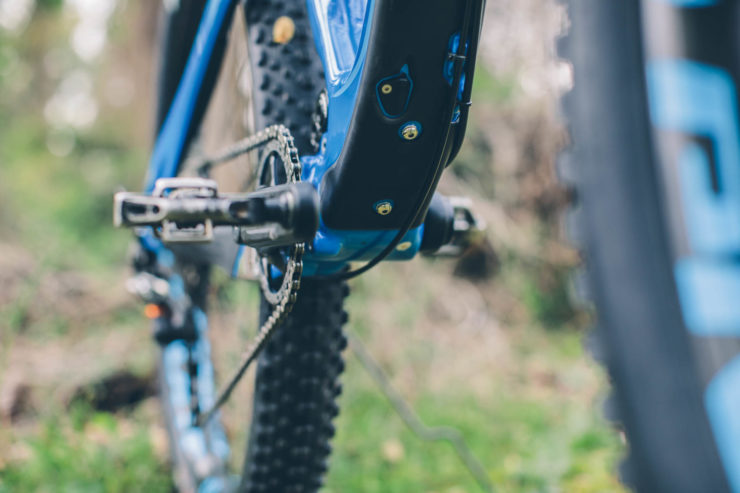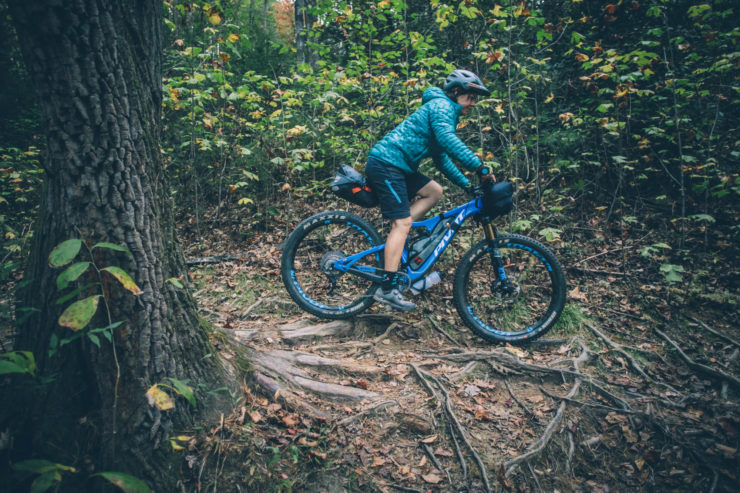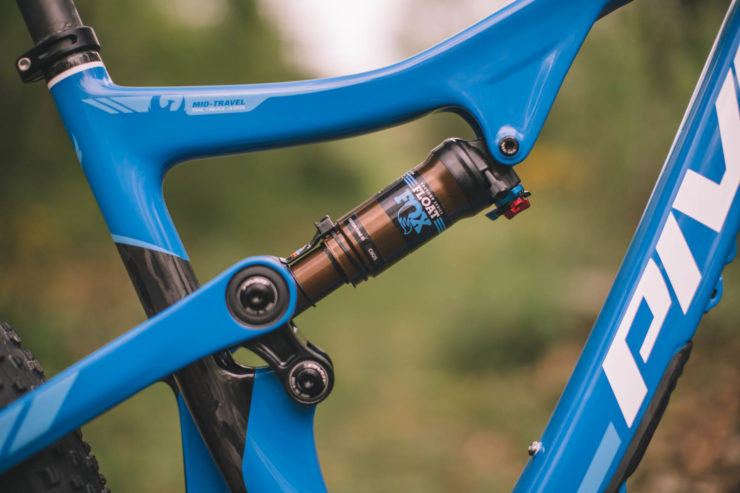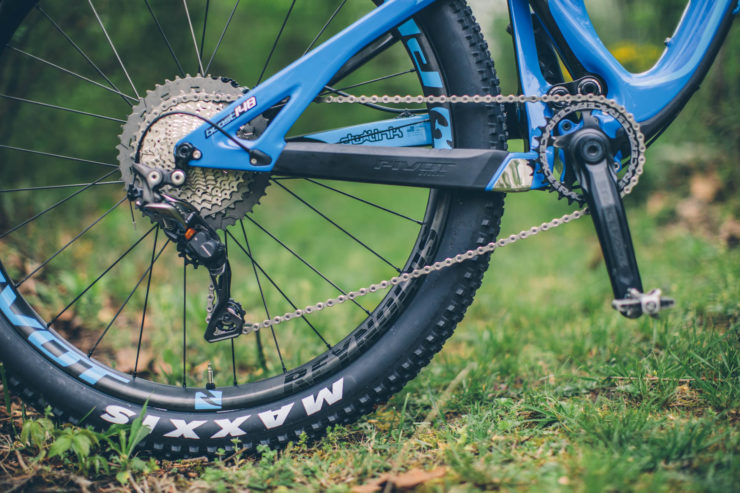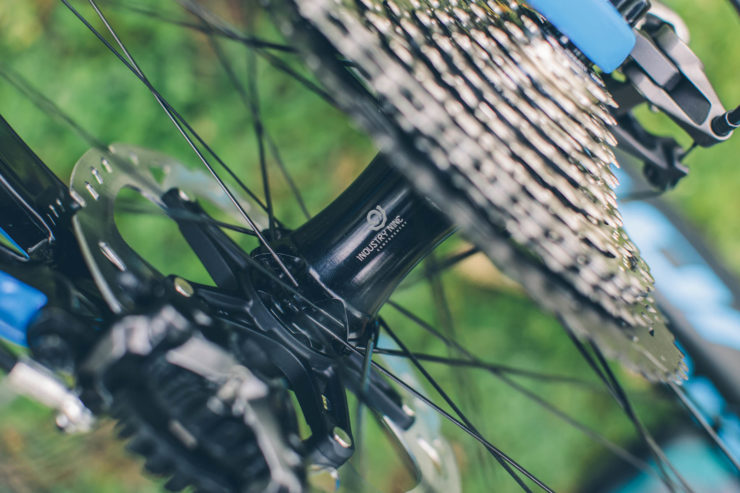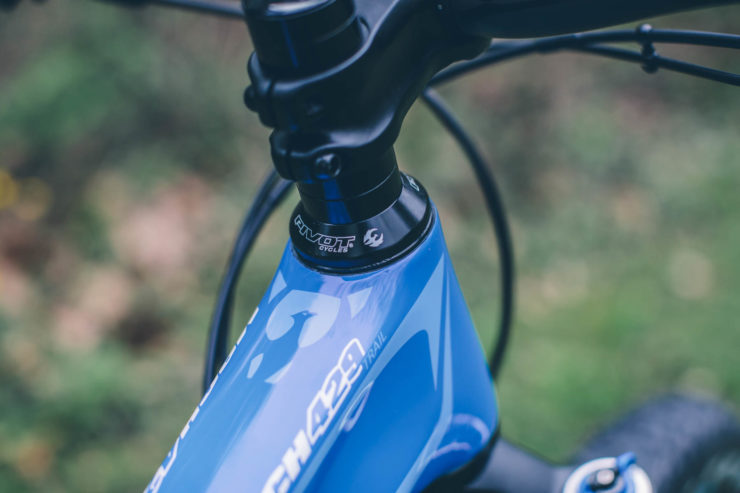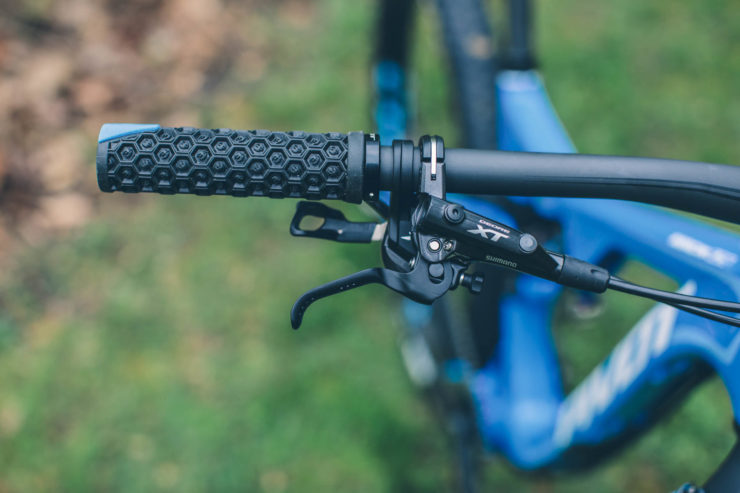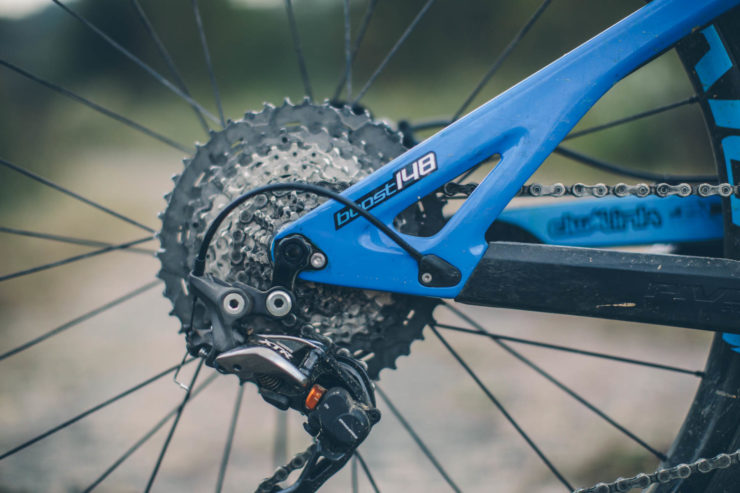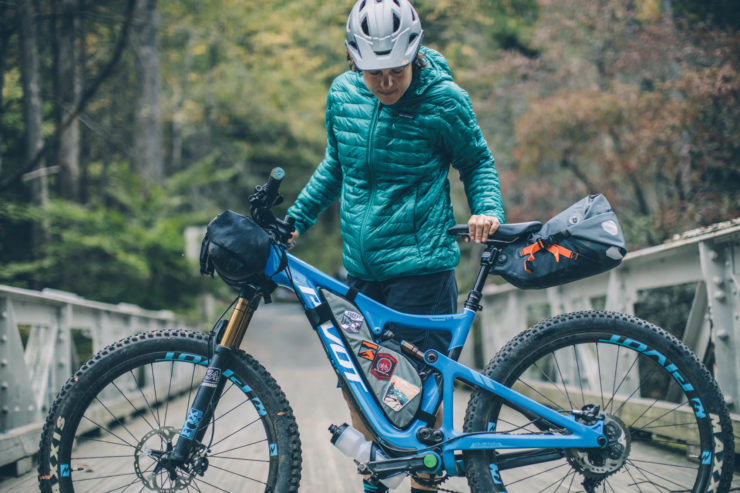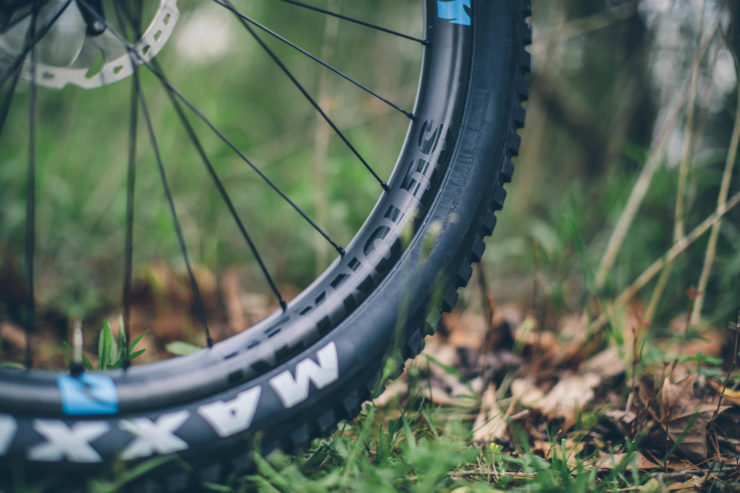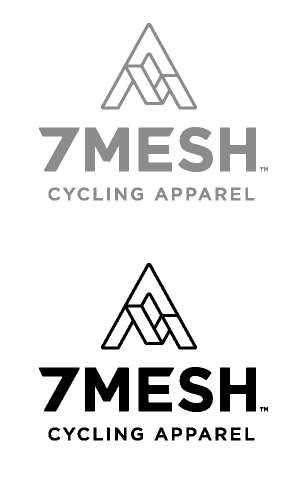Pivot Mach 429 Trail Review: The Ideal Full-suspension Bikepacking Rig?
Share This
When choosing a new trail bike, bikepackers bring their own set of requirements to the table. After demoing several different full-suspension 27.5+ bikes, trying to find the perfect bikepacking/trail machine, the Pivot Mach 429 Trail got the nod for Gin’s long-term review. Plus, our take on what’s required for a full-suspension bike to make a great bikepacking rig…
A hardtail is the safe bet when it comes to bikepacking. The increased packing space afforded by the lack of rear suspension in the frame’s triangle is invaluable. Hardtails typically provide more space for seat bags as well. And as for mechanics, a hardtail just seems burlier. With a reasonably packed load, stressing out suspension or adversely affecting the bike’s balance are non-issues. When travelling overseas, especially in places where modern bike shops aren’t prevalent, a hardtail provides added peace of mind. The more complicated a piece of machinery, the more apt it is to fail.
But, for me, there’s just something missing with a hardtail, especially when I’m relying on that same bike for trail riding. My local trails are in Pisgah National Forest, where rocks, drops, and oh-so-many roots are commonplace. Some folks ride hardtails here, and some, who must really enjoy a good sufferfest, ride rigid, but full suspension is the norm. I like being able to confidently descend trails without beating myself to no end. I’m not getting any younger. As the years accumulate, my joints seem to increasingly feel all of the roots and rocks in my path. Long days or weeks in the saddle take their toll. Aside from that, I find full-suspension bikes simply more fun to ride, whether hitting the local trails for a quick spin or heading out on a multi-day adventure.
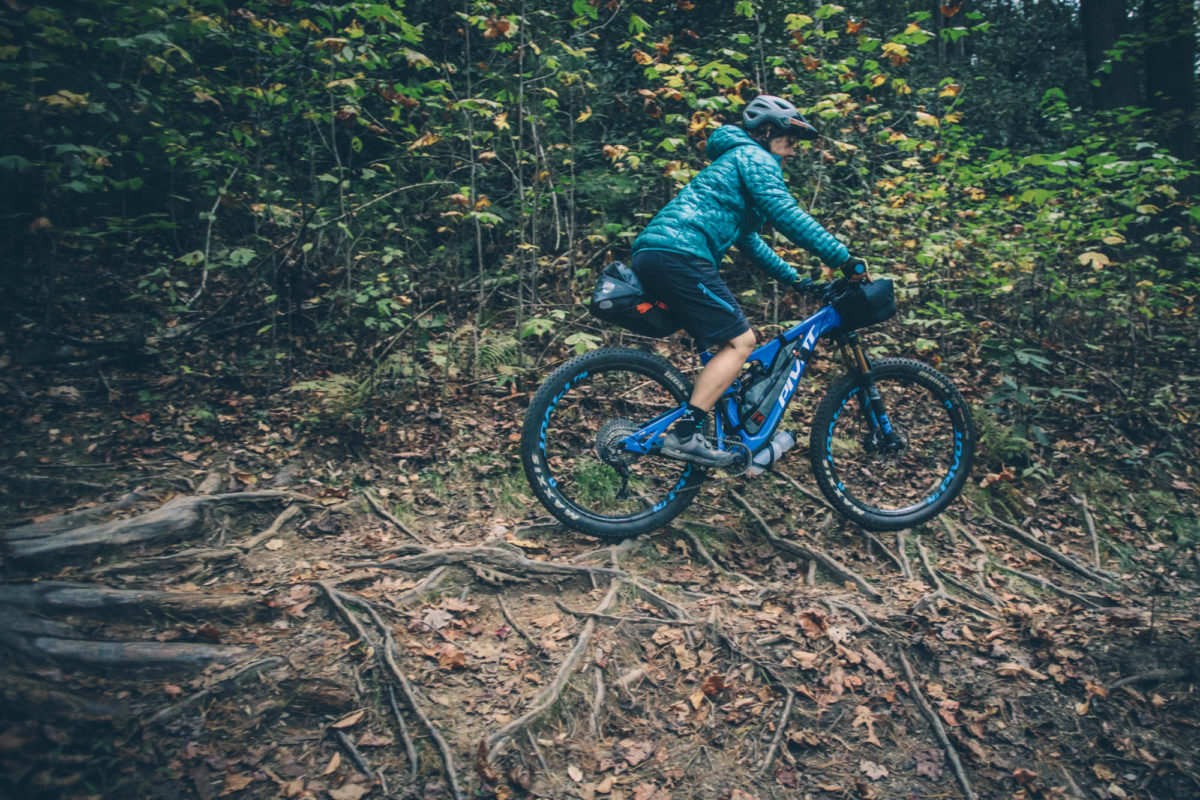
- Highlights
- Tested: Carbon 27.5+ Pivot Mach 429 Trail
- Angles (LG): 67° Head tube, 72.3° Seat tube
- Stack/Reach (MD): 612mm/403mm
- BB Height/Chainstay: 332mm/443mm
- Bottom Bracket: PF92
- Hub specs: 148x12mm rear / 110x15mm front
- Seatpost Diameter: 30.9mm
- Max tire size: 27.5 x 2.8″ / 29 x 2.3-2.4
- Price (base model): $4,300
Logan and I tested a lot of full-suspension bikes in 2016 and 2017 while trying to find the perfect replacement for my old 2011 Santa Cruz Superlight 29. It was a good bike that went on many trail rides and bikepacking trips, including the Gila River Ramble and Big Bend, to name a few. But it was flimsy, especially when loaded with bags (apparently, in part, due to narrow quick-release dropouts and hubs, and poor quality wheels). I was ready for an upgrade.
Between the two of us, we tested the Pivot Switchblade, Salsa Pony Rustler, Niner Jet 9 RDO+, Santa Cruz Tallboy D+, Rocky Mountain Pipeline, Ibis Mojo 3, Marin Rift Zone, and a couple others. Most of these bikes are 27.5+. When I demoed the Jamis Dragonslayer a few years back, I fell in love with the platform, so I thought it might be time to make the big switch.
Is one of these bikes measurably better than the rest? That’s hard to say, but in the end I did narrow it down to just one for a long-term review. This was my first full-suspension trail bike upgrade since I started riding, and my Superlight 29 had definitely seen better days. We (Logan added his two cents, or twenty) based the decision to long-term review the Pivot on a few things. The bike’s geometry was foremost. I wanted a comfortable ride that felt stable but playful. It also needed attributes that would make for a good bikepacking rig. On paper, the Pivot Mach 429 Trail looked like the most versatile and bikepacking friendly of the five. And, based on my limited test run, it also seemed like it fit me the best.
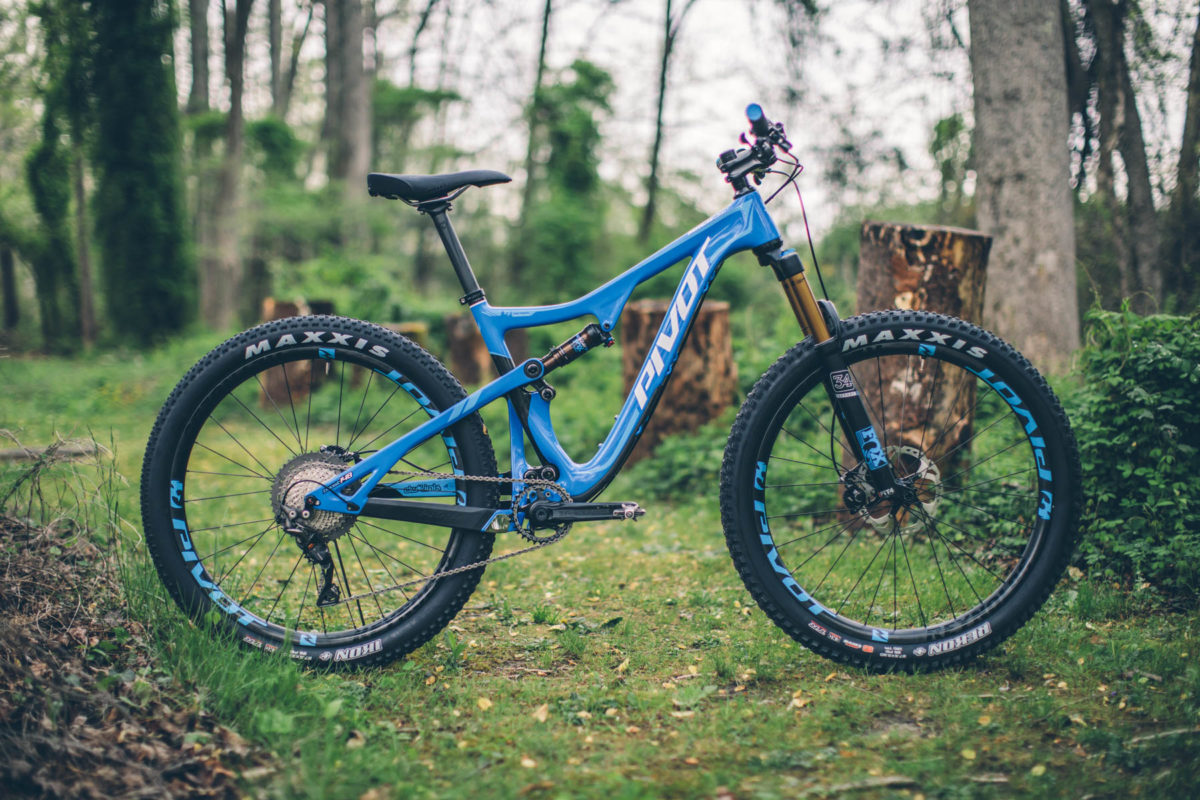
Fit, Size, and The Nitty Gritty
The Mach 429 Trail was originally conceived as a 29er. However, it has BOOST spacing in the front and rear, allowing for either standard 29″ or 27.5+ wheels and tires. After years spent on a 29er, I felt like it was time to mix things up, and I hoped the 27.5+ platform would help me to improve on more technical terrain. Having the option to revert to a 29er is great, though, since I’m not wedded to one size versus the other.
The Mach 429’s geometry lands it somewhere between a cross country bike and an enduro rig. It’s an all-around trail/mountain bike that can handle a vast range of terrain. Its pedaling performance and climbing characteristics are classically XC, but its relatively long chainstay (443mm—a hair longer than other bikes in its class) and slackish head tube angle provide plenty of stability on descents. At the local Pivot demo last weekend, I was speaking with a guy who said he was amazed by how comfortable it felt in the air and on steep and fast descents. I agree with all of that, except for the air part, as I stay relatively close to the ground at this point in my mountain biking career.
Given that the Pivot Mach 429 is designed around 29” wheels/tires, the bottom bracket height was a bit of a concern. Theoretically, a standard 29er tire (2.25”) has the same diameter as a 27.5 x 3.0” tire. However, the 429+ is specced with 27.5 x 2.8” tires, which might lower the bottom bracket a hair. It’s nice to have a bottom bracket that’s low enough to give it that “in the bike” feel, but I was worried it would be too low, and I’d be knocking pedals on our rooty and rocky turf in Pisgah. However, I found out that Pivot specs the 27.5+ versions with a 17mm headset cup which raises the front and ensures that the BB is at the same height. While it’s hard to compare to other models on paper without doing some inaccurate math—since Pivot specs the BB height, where most other companies spec BB drop—I have found the Mach 429’s 33.5cm bottom bracket height to be fine and haven’t had any issues with pedal strike.
As a 5’7” rider at the low end of its recommended height range, I went with the medium sized frame. As it stands, the Mach 429 Trail has a short reach and high stack height, both of which are perfect for me, as I prefer a more upright stance. Plus, being on the shorter end of the recommended height, the fit feels spot on. Taller riders might take issue with the relatively short reach.
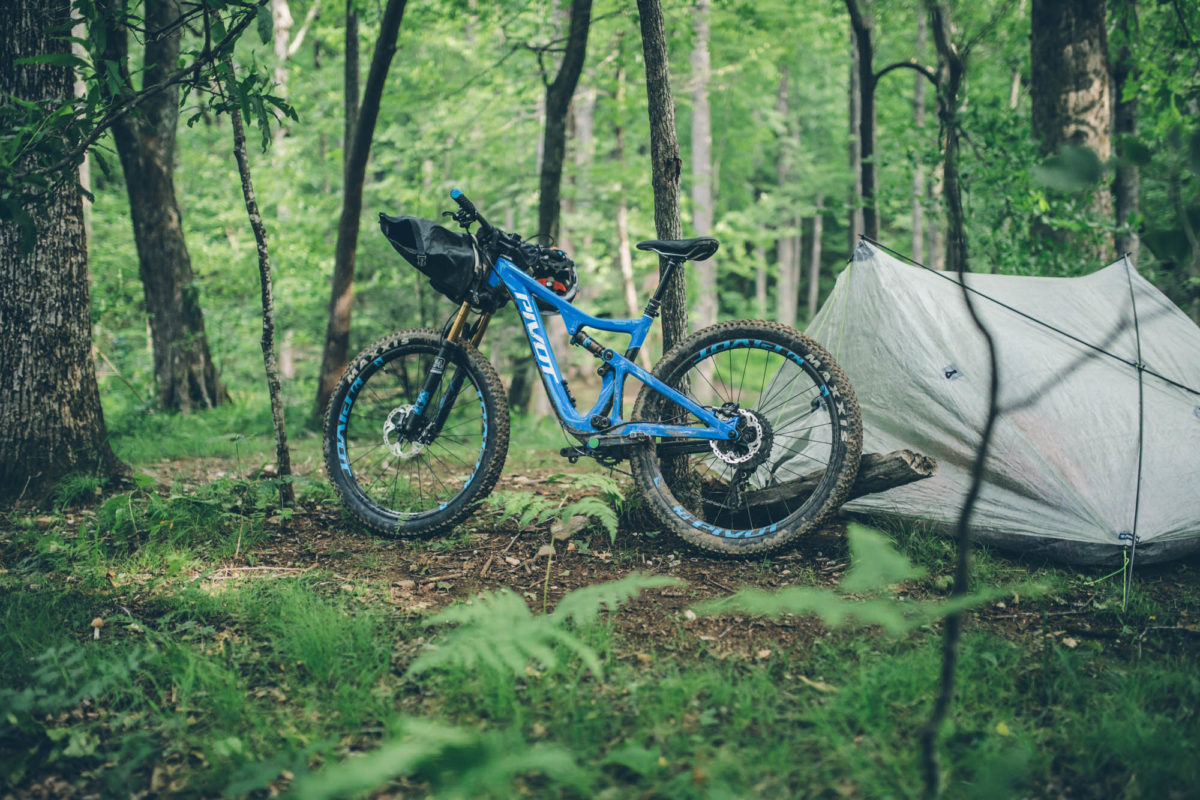
What Makes The Mach 429 a Good Full-suspension Bikepacking Bike?
By Logan Watts
There are a few extra requirements that need to be met when choosing a trail bike that will double as a bikepacking rig. Be it for tackling the Colorado Trail, the AZT, or the Southern Highlands Traverse, most bikepackers want a bike that’s going to be fun to ride, capable over a wide variety of terrain, and able to handle a load, all without compromising responsiveness or comfort. Here are several points and how the Mach 429 Trail fit the mold.
1. The Right Suspension
Pedal-bob isn’t really a term you hear much anymore, but there are bikes that feel snappier, climb better, and simply feel less sluggish. The Mach 429 Trail features a relatively short travel suspension platform supplied by Dave Weagle’s DW-Link four-bar design—currently only licensed to Pivot, Ibis, Turner, and a couple other companies. Every bike I’ve ridden with this suspension has impressed me. The Mach 429 is no different. With a snappy feel that climbs well and gives the bike XC speed on the ascents and flats, it also performs well on moderate to steep technical descents. It isn’t the most adept at handling burly drops, but the shorter travel works well with the 2.8″ tires and allows that same climbing-friendly suspension to dig deep and perform at an all-mountain level while descending.
2. But not too much travel
According to Pivot, the Mach 429 Trail has 116mm of DW-link suspension, which “feels like a 100mm bike when climbing and a 130mm bike when descending.” It doesn’t have as much travel as some of the bikes we demoed, so perhaps it’s not fair to judge it against them. But, as mentioned, when paired with 2.8” tires, a “short-travel bike” certainly has a lot more fortitude when plowing through technical bits and finding lines through rocky descents. I found this to be the case with the 91mm Deadwood SUS, which went down a lot of trails most people wouldn’t touch on a short travel bike. In my opinion, this is a magical combination when it comes to a full-suspension bikepacking platform. Having less suspension seems to improve performance when there is extra weight, and the tires provide any extra cushion that might otherwise be lacking. Having less travel is also more bag-friendly, both in the front, for handlebar roll clearance, and in the back, for a seat pack (if you have long legs and the luxury to use all of the the suspension).
3. Loading capabilities
There is, by no means, a ton of space in the frame’s triangle for storage, but compared to a lot of other full suspension bikes, there’s enough room to warrant the use of a frame bag. Gin can carry all this (see the pack list for trail riding) in her Rockgeist Mudlust frame bag mounted on the Mach 429 Trail.
There are also two bottle mounts on the frame: one inside the triangle and one on the underside of the down tube. With a frame bag in place, the first mount is useless, but having a lower cage mount is great for bikepacking, especially when water is scarce. It doesn’t interfere at all with pedaling, but it does decrease overall clearance. That said, when riding a fully loaded bike, most folks are less inclined to attempt big drops, so the lowered clearance doesn’t pose that much of a problem.
4. And not Flimsy
The Mach 429 Trail can handle a surprisingly large load without compromising responsiveness or agility. Much of this is owed to the stiffness of the bike—a byproduct of a super stout carbon frame, solid linkages, modern fixtures such as BOOST hubs, thru-axles, a burly carbon construction, and a wide 92mm bottom bracket.
Another key feature is that the Fox Float DPS shock can be completely set to “firm” or totally locked out. If a rider has minimal rear tire to saddle clearance and is carrying a seat bag, it might be necessary to lock the shock. Otherwise, it’s sometimes possible to set the shock to firm or add 10 PSI or so to your rear shock to avoid seat bag interference. While the Fox shock locks out, I have found several Rock Shocks do not, such as the Monarch RT3 specced on the Deadwood SUS.
5. Comfort on the trail, and for long days
The Mach 429 is a great all-around trail bike. With a long top tube, low bottom bracket, and relatively slack 67° head tube angle, it’s aggressive enough but also has a decent stack height and somewhat steep seat tube angle (72.3° on the medium). It’s hard to argue with a bike geometry that’s not only touted, but proven, to have the feel of an XC bike while pedaling and a trail bike when pointed down the mountain.
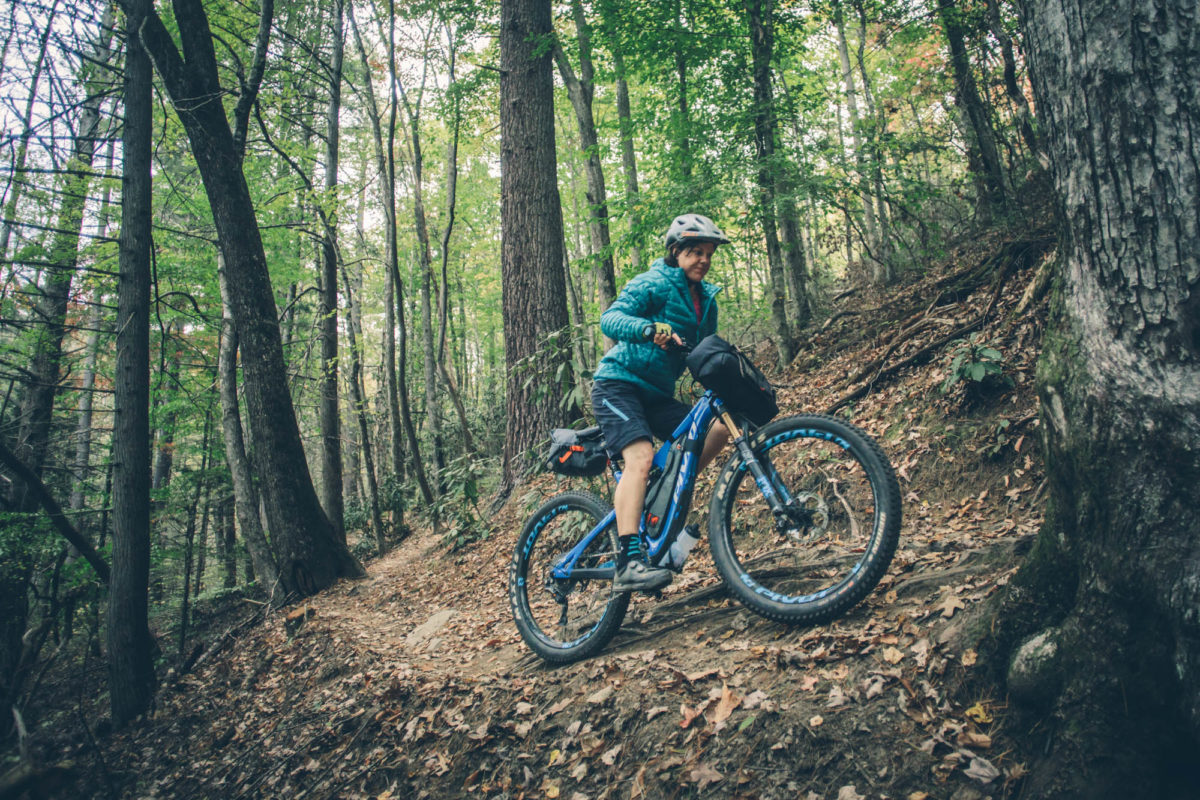
On The Trail
Out on the trail, the most laudable attribute of the Mach 429 Trail is its pedaling efficiency. It climbs exceptionally well. The first time I rode the bike it felt like a rocket ship on the ascents. The carbon frame and wheels are stiff, but extremely lightweight. And, when the suspension is locked out, the Mach 429 feels like the best of hardtails. That said, even when it’s not locked out, the DW-Link performs extremely well on climbs.
Much of the pedaling efficiency has to do with the direct power transfer from the pedals, and the fact that not much is lost due to frame and wheel movement. This bike is stiff. Unlike my old Superlight 29 that twisted and bent when the pedals were mashed, the Pivot doesn’t flex, and all the energy applied feels like it goes directly to the trail. Even during the few times I’ve taken it out bikepacking, laden with snacks and sleeping gear, it felt like the baggage and weight had very little effect, if any, on stiffness and responsiveness of the frame. The wide hubs, stout carbon build, and solid bottom bracket interface all seem to work in concert to provide a super solid platform that fends off any inkling of wobbliness.
So, the climbing is awesome and it’s incredibly efficient, but how about descending? To be fair, not one who can discern the nuanced differences in downhill performance between the Mach 429 Trail and other similar bikes in the category. Yes, I like it (a lot), and have found a new level of confidence riding trails in Pisgah, but I’m not the fastest rider, nor do I attempt a lot of big drops or advanced sections. I have, however, had a couple of conversations with “enduro-minded” individuals who’ve tried this bike and were impressed by its abilities when pointed down and over jumps, drops, and other such terrain. Most folks will tell you that it can do quite a bit for what it is, a mid/short-travel bike. It thrives on flowing trails and is equally adept when it comes to fast and steep, but may not be the perfect bike if you are highly skilled and looking for a bike to attack fast corners on ultra-rugged, steep terrain.
Build Kit
Pivot doesn’t cut many corners when it comes to component selection. You won’t find an entry model with a cheap NX drivetrain or other such lesser components. That means none of the various Mach 429 Trail builds are cheap, either. All told, there are 14 different configurations. Even the $4,300 base model is quite pricey. But, it has a SLX/XT drivetrain and the same Aeffect cranks specced on each of the builds—which happens to be Logan’s favorite crankset. As an alternative option, Pivot also sells the frame alone for $2,500.
The sticker price on the model I’ve been testing (Pro XT/XTR 1x 27.5+) is $5,699, which is the highest of the 1×11 builds, but is not out of step with other high-end, full-squish bikes on the market these days. Much of that expense goes toward the Pivot carbon frame and sophisticated linkages, but the bike also has a very thoughtful, quality build kit. The drivetrain is geared perfectly for bikepacking, with the dependable Aeffect CINCH direct mount crankset, paired with a 30T chainring and XT 11-46T cassette, which also helps with many of the steep climbs around here. It has a lockable 130-millimeter Fox Factory 34 fork, a Float DPS Kashima rear shock, and XT brakes. In addition, this particular bike has the Reynolds/I9 wheel upgrade (priced separately) with a dependable, quick engagement Industry Nine rear hub.
Drivetrain
- Shock Fox Float DPS Kashima
- Fork Fox 34 Factory 29″ 130mm – Boost
- Rear Der XTR 11spd Gs
- Shifters XT 11spd R
- Cassette Shimano XT M8000 11-46 11spd
- Cranks Race Face Aeffect Sl 30T
Cockpit
- Brakes XT 8000
- Headset Pivot Precision Sealed Bearing
- Bar Phoenix Team Carbon 35mm – 760mm
- Grips Phoenix Team Padloc
- Stem Phoenix Team Trail 35mm Dia. Clamp. Length: S – 45mm, M, L, Xl – 65mm
- Seat Post Fox eThirteen TRS Dropper Post (added)
- Seat Pivot Wtb Vigo Race
Wheels/Tires
- Wheels Reynolds / I9 275 Plus Carbon
- Front Tire Maxxis Rekon 27.5″+ X 2.8″ Tr, Exo
- Rear Tire Maxxis Ikon 27.5″+ X 2.8″ Tr, Exo
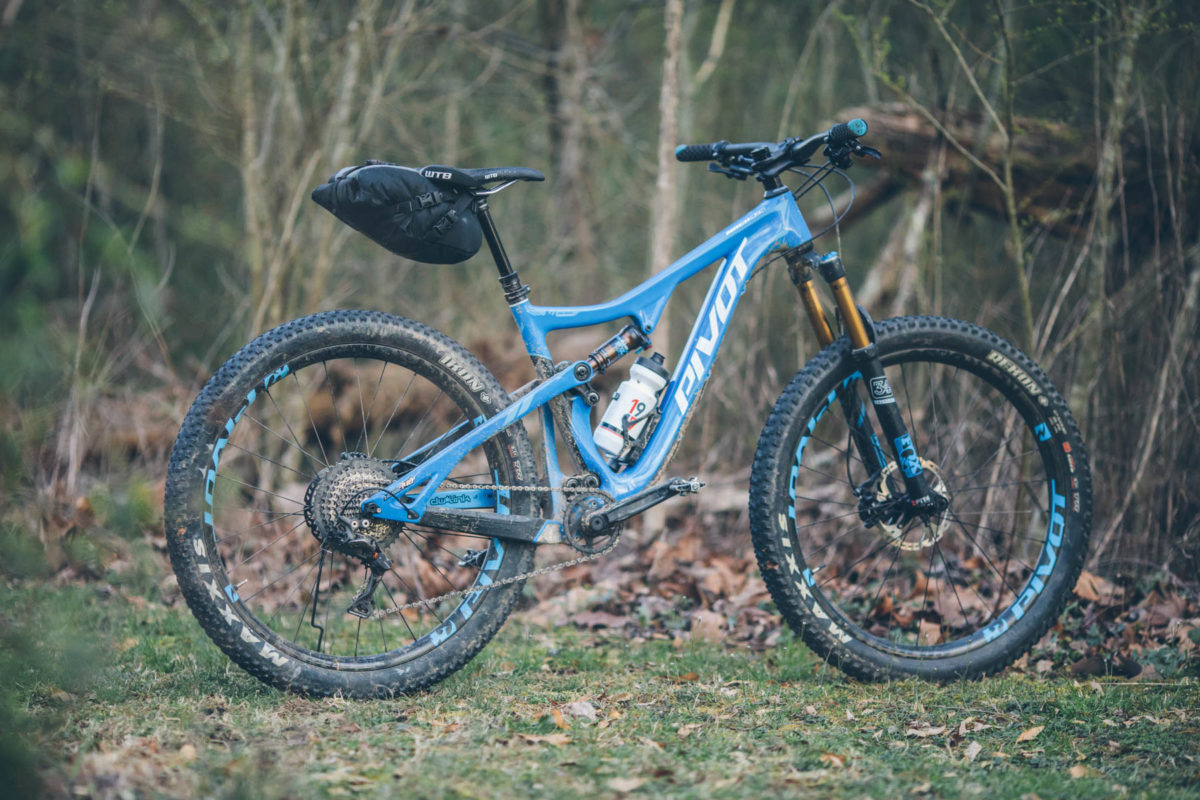
Pros
- Efficient DW-Link suspension design pedals like an XC bike and descends like an all-mountain bike
- Super stiff frame, linkages, and wheels work well for carrying a load
- Excellent geometry that feels upright and stable while climbing but low and confident when descending
- Great suite of components
- Ticks all the boxes as a good option for a full-suspension bikepacking bike
Cons
- Expensive
- It would be nice to see full internal cable routing at this price point
- Press Fit bottom bracket will be an issue for some folks
- Slight curve where the lower bottle mounts sit makes for a strangely angled mount
- Maxxis Icon is a little too light for the rear. I recently replaced it with a Rekon and put a Minion DHF on the front.
- Model Tested Pro XT/XTR 1x 27.5+
- Size Tested M
- Weight (as tested) 12.9 kg (28.4 lbs)
- Price $5,699
- Manufacturer’s Details pivotcycles.com
Wrap Up
I’m thoroughly impressed after spending seven months on the trails with the Mach 429 Trail. This bike climbs like a dream and is playful yet stable on descents. It might not perform like a long travel rig on big hits, because it isn’t one. Its lightweight yet stiff frame lends itself perfectly to bikepacking adventures. While there isn’t a ton of storage space in the frame triangle, there’s room enough that a well designed frame bag can fit quite a few weekend or overnight essentials. Seat bag size may be limited, depending on a rider’s inseam, but with the ability to fully lock out the rear shock, or set it to ‘“firm,” tire rub can be minimized or eliminated. Whether it’s for an adrenaline-filled afternoon jaunt or a weekend of bikepacking, the Mach 429 Trail is a great performer, no compromises necessary.
Please keep the conversation civil, constructive, and inclusive, or your comment will be removed.




